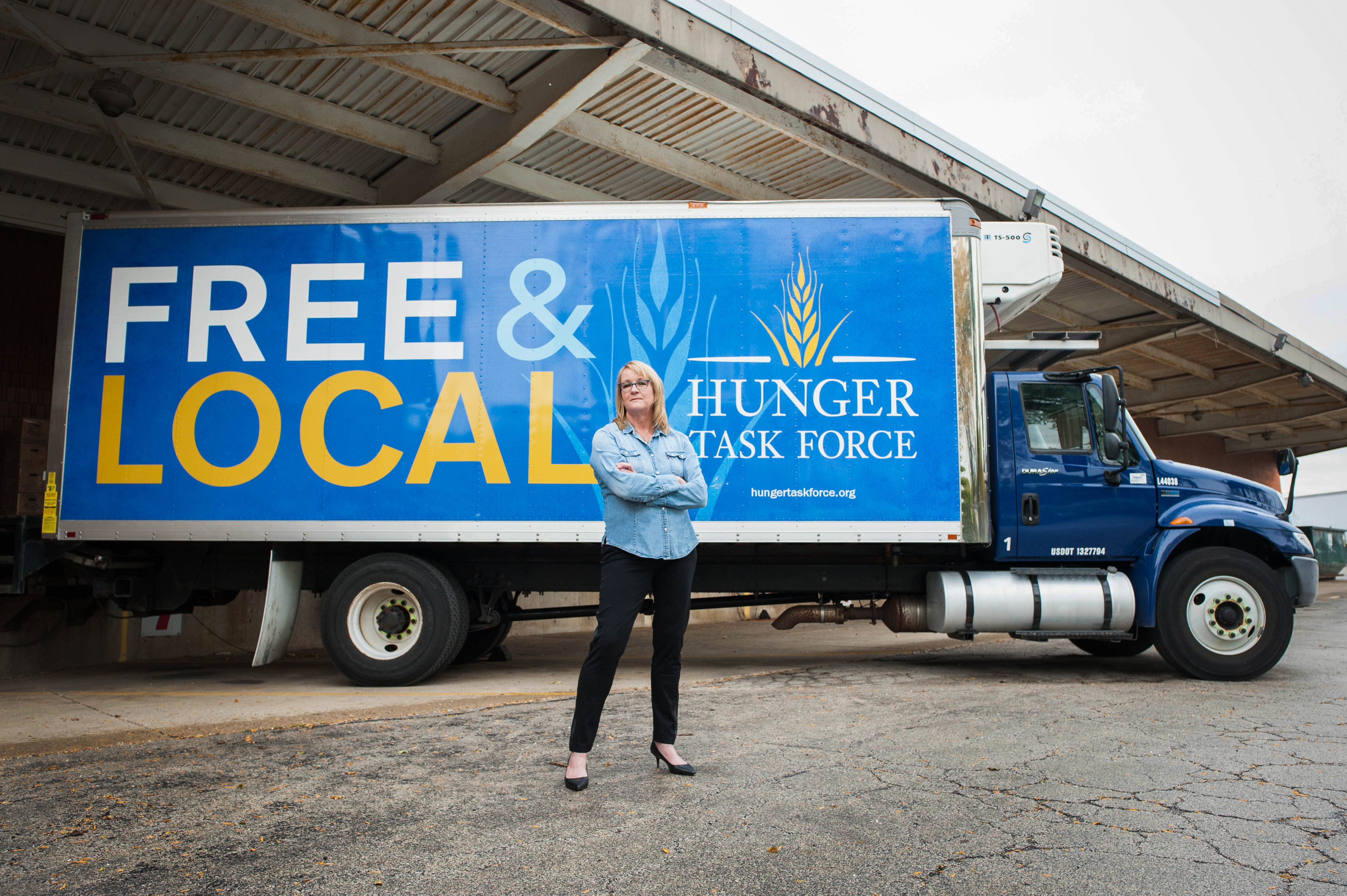Hunger Task Force
Milwaukee is the 19th poorest large city in the US. One in four children living in Milwaukee experience hunger. 230,000 people rely on FoodShare to help make ends meet, and 10,000 local seniors receive commodity foods in a box each month.
There are a series of well-run food pantries dotting our community that form a safety net of help for people who run low on food. These food pantries are mostly run by volunteers as part of a faith based ministry. There are also soup kitchens, homeless shelters and senior dining sites. Together these groups feed the hungry, but they don’t solve hunger.
Feeding the hungry is about so much more than filling a food drive barrel. The health of Milwaukee is directly connected to what we eat. Food that is nourishing assures everyone engages better. When you donate choose whole grains, veggies low in added salt and fruit in its own juice. Skip highly processed foods altogether!
The Hunger Task Force is a “Free & Local” food bank, meaning we never charge for food and were established locally. The Farm, operated by Hunger Task Force grows everything from asparagus to zucchini, ensuring that hungry people have access to fresh produce from May through November. Ending hunger means changing how we help people with little or no money to live reasonably.
Too many people in Milwaukee ignore the plight of people living marginally. We have grown to accept beggars on the corner and a host of tent camps under bridges. We hardly notice children standing at the bus stop without a coat or mittens.
To end hunger, we need to re-think work requirements. While work is the most dignified way to get food on the table, should we withhold food from people who are too young, too sick or too old to work? For those who are able to work, wages should be sufficient to afford housing, utilities and food and currently they are not as evidenced by the need to dispense FoodShare to one in seven residents.
Feeding the hungry necessitates ending future hunger. Your voice and vote can inform decision makers when you are dissatisfied with the maltreatment of children, seniors, people with disabilities and the working poor who have been left to fend for themselves when it comes to a roof over their head, food on the table, clothing or medicine.





